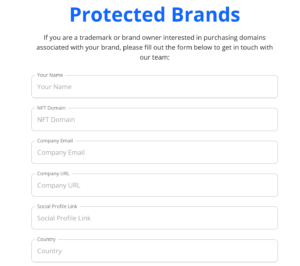
Climate change has had dire impacts worldwide, from rising sea levels and flooding to extreme heat and droughts. These consequences also affect food production, access to clean water, and loss of biodiversity.
While it’s taken a long time to address the global emissions crisis, so far, 195 countries have signed the Paris Agreement to curb greenhouse gases and limit planetary temperature escalation to 1.5°C by 2050.
Beyond international efforts to take action on the effects of climate change by mid-century, companies are also doing their part to offset carbon. Read on to learn more about how corporations aim for carbon neutrality to tackle greenhouse gas emissions.
Carbon Neutrality vs. Carbon Offsetting
While they may sound similar, carbon neutrality and carbon offsets are quite different.
To be carbon neutral, you must maintain a balance of emitting carbon and permanently reducing carbon. Carbon removed from the atmosphere and stored in carbon sinks is carbon sequestration. To have net-zero emissions, you must neutralize the carbon sequestration.
On the other hand, another way to reduce greenhouse gas emissions is through carbon offsets. Carbon offsetting means reducing emissions in one sector as they’re generated in another. Investments in renewable energy and clean technologies have pioneered this endeavor.
Big Business of Combating Climate Change
Although the fossil fuel industry is accountable for 74% of total carbon emissions in the United States, several companies have also caused damage to the environment. Examples include manufacturing, as well as the food, clothing, and technology industries.
However, companies are rapidly changing their business models and creating initiatives to improve their carbon footprint. Here are five companies that are doing their part to fight climate change.
1. Microsoft
Although Microsoft’s business operations became carbon neutral in 2012, it also manufactured 825,000 Xbox gaming consoles through carbon-neutral processes. In addition, all of Microsoft’s manufacturing sites use 100% renewable energy in their production process.
In the United Kingdom, companies like Microsoft, which are committed to carbon neutrality, follow the Publicly Available Specification (PAS) 2060 standard. PAS 2060, produced by the British Standards Institution, defines a stringent series of measures for businesses, organizations, governments, and individuals to follow to demonstrate carbon neutrality.
Companies can pursue verification with a third party after satisfying the four benchmarks of carbon neutrality: measurement, reduction, offsets, and documentation.
2. Nestle
Intending to reduce greenhouse gas emissions by 50% by 2025 and go net zero by 2050, Nestle uses its scope and outreach to take a stronger stance against climate change.
Nestle has outlined several core actions to help them achieve zero emissions:
- Plant 20 million trees every year for the next decade.
- Help farmers change their agricultural practices to regenerative food production.
- End agricultural supply chain-related deforestation by 2022.
- Switch their operations to 100% renewable energy in 187 countries by 2025.
- Promote consumer involvement by increasing the number of carbon-neutral brands.
3. Facebook
Facebook’s mission to become carbon neutral by 2030 includes eradicating carbon emissions from its business travel operations and aligning itself with the provisions of the Paris Agreement.
Facebook already boasts zero emissions for 2020 in its recent sustainability report and intends to continue its work by prioritizing carbon removal projects that focus on transparency, its carbon footprint, supporting livelihoods and biodiversity, and preventing adverse impacts elsewhere.
4. Google
Google was the first company to achieve net-zero emissions through carbon offsetting in 2007. By 2030, they aim to operate around the clock on renewable energy globally at all of their campuses.
Additionally, Google plans to invest in sustainable technologies that empower its consumers to make sustainable choices. With Google’s commitments to maintain carbon neutrality, it intends to develop 20,000 jobs in clean energy by 2025.
5. Apple
Apple is working towards carbon neutrality by 2030 by making sure all of its technology has zero emissions, from the supply chain process to the product life cycle. Notable highlights from Apple’s 2021 Environmental Progress Report include:
- Corporate operations have been carbon neutral since April 2020.
- All Apple facilities run on 100% renewable energy.
- Apple intends to provide $200 million to fund climate change solutions.
Additionally, to continue decreasing its carbon footprint, Apple will enhance energy efficiency and develop low-carbon designs, maintain its reliance on renewable energy, and invest in carbon removal projects.
Fighting Climate Change: A Team Effort
Sustainable measures for reaching carbon neutrality are essential for a healthier planet. Through collective action and intelligent, science-backed strategies, companies can make a tremendous difference in the fight against climate change.
- 000
- 2020
- 2021
- 2022
- About
- access
- Action
- actions
- addition
- address
- Agreement
- All
- already
- Apple
- April
- around
- available
- boasts
- brands
- British
- business
- business operations
- businesses
- carbon
- carbon emissions
- carbon footprint
- Carbon Sequestration
- caused
- change
- clean energy
- Climate change
- Clock
- Clothing
- Collective Action
- Companies
- company
- consumer
- Consumers
- continue
- Corporations
- countries
- Creating
- crisis
- deforestation
- develop
- different
- efficiency
- EIA
- Emissions
- empower
- energy
- energy efficiency
- Environment
- environmental
- farmers
- Focus
- follow
- food
- Footprint
- Fuel
- fund
- gaming
- GAS
- Global
- Globally
- Governments
- greenhouse gas
- Greenhouse gas emissions
- help
- here
- How
- HTTPS
- industries
- industry
- Institution
- Intelligent
- International
- Investments
- IT
- Jobs
- LEARN
- levels
- Long
- low-carbon
- Making
- manufactured
- manufacturing
- Microsoft
- million
- Mission
- models
- more
- net
- offset
- Operations
- organizations
- Other
- paris
- planet
- preventing
- process
- processes
- Produced
- Product
- Production
- projects
- provide
- reduce
- regenerative
- reliance
- renewable energy
- report
- Run
- SEA
- sector
- Series
- similar
- Sites
- So
- Solutions
- standards
- States
- supply
- supply chain
- Sustainability
- sustainable
- Technologies
- Technology
- Through
- time
- Transparency
- travel
- tremendous
- United
- United Kingdom
- United States
- Verification
- Water
- Work
- working
- worldwide
- xbox
- year
- zero




